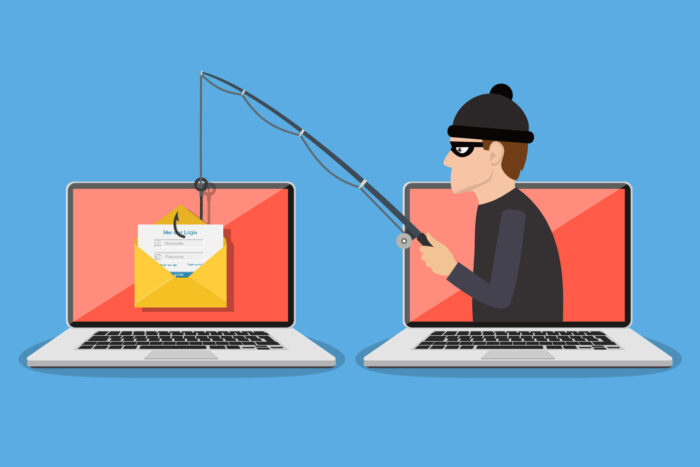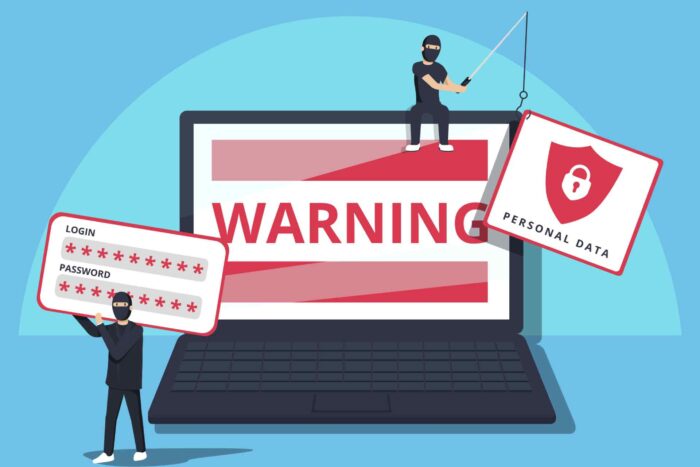Why You Shouldn’t Click Suspicious Links on Gaming Websites
wp:paragraph
Navigating the online world is already difficult enough as it is. Scams and spam have become normal to stumble upon on social media, websites, and even gaming platforms.
/wp:paragraph
wp:paragraph
The saddest part is that all this can significantly affect mental health, as no one is ready to face the consequences, which often can be severe. Financial loss, identity theft, and reputational damage are the most common examples.
/wp:paragraph
wp:image {“id”:25734,”sizeSlug”:”full”,”linkDestination”:”none”,”align”:”center”}

/wp:image
wp:paragraph
According to statistics, just between 2021 and 2022, more than 3 million phishing attacks took place on gaming platforms alone. Social media and dating apps are also rife with phishing links, with scammers patiently waiting for users to click on them to steal their money and data.
/wp:paragraph
wp:paragraph
In this article, we will explain in detail what phishing is, its common signs, and ways to protect yourself on gaming sites.
/wp:paragraph
wp:heading
What Is Phishing?
/wp:heading
wp:paragraph
In simple terms, phishing is a tactic scammers use to defraud internet users. That basically means that someone “fishes” for your information. Scammers can send you an email or a message (also known as smishing) on behalf of somebody else, usually an organization, online store, or a person you know.
/wp:paragraph
wp:paragraph
This email or message includes a link, which you are prompted to click, and that is where the danger begins. The second you do click on this link, you are transferred to a fake website, where scammers get hold of your personal information, such as passwords, bank account details, login credentials, and more.
/wp:paragraph
wp:paragraph
On gaming sites, scammers can pretend to be game admins, friends, or popular services to trick you into giving your login details, in-game items, or money.
/wp:paragraph
wp:heading
How Do I Know That I Am Dealing With Phishing on Gaming Sites?
/wp:heading
wp:paragraph
If you are careful enough, phishing is not that hard to detect. Certain signs give away this malicious practice on gaming platforms and email services. Let’s take a look at some of them.
/wp:paragraph
wp:list
- wp:list-item
- Strange Sender Address
/wp:list-item
/wp:list
wp:paragraph
If you don’t recognize the support email of, let’s say, a gaming platform that sent you the email or message before, that might mean that a scammer is contacting you. If you notice even any slight difference, compare this email to the one you originally interacted with for any discrepancies.
/wp:paragraph
wp:paragraph
Scammers try not to change much. For instance, they might change just one letter or symbol to make the email address look identical to the real one.
/wp:paragraph
wp:list
- wp:list-item
- Suspicious Links
/wp:list-item
/wp:list
wp:paragraph
Links might look normal, but if you hover your mouse over them, you will see a weird URL. For example, the text might say: Click here to update your gaming account (and the link to your account). But when you hover over it, you see something completely different.
/wp:paragraph
wp:paragraph
This is a sign that the link doesn’t go where it claims to. And if you click on it, you risk losing your money, personal information, or identity.
/wp:paragraph
wp:list
- wp:list-item
- Unexpected Attachments
/wp:list-item
/wp:list
wp:paragraph
In some cases, scammers attach PDF, Word, or ZIP documents that are infected with viruses or malware. These may seem harmless at first, but when you download them, they can silently install malicious software on your device.
/wp:paragraph
wp:paragraph
This software, in turn, can steal your passwords and personal information, spy on your activity, or even take control of your computer, among other things.
/wp:paragraph
wp:list
- wp:list-item
- Urgent Language
/wp:list-item
/wp:list
wp:paragraph
Phishers try to panic you into clicking to make sure you click the link as soon as possible and don’t get off the hook. For this, they often use urgent or even threatening language, such as warnings that your account will be suspended or your personal information has been compromised.
/wp:paragraph
wp:list
- wp:list-item
- Too-Good-to-Be-True Offers
/wp:list-item
/wp:list
wp:paragraph
If you are the type of person who loves freebies or participates in contests on gaming sites, be careful here. Phishers usually offer something that is too good to be true, such as free access to a game for following an Instagram account, a MacBook for clicking a link, or money for entering a competition.
/wp:paragraph
wp:heading
How to Avoid Phishing on Gaming Sites?
/wp:heading
wp:heading {“level”:3}
1. Don’t Click on Random Links
/wp:heading
wp:list {“ordered”:true}
/wp:list
wp:paragraph
It may be tempting to open a link that is supposedly from your friend or a contest where you can win virtual money for the game, expansions, or something else, but clicking on links may also result in money losses or worse.
/wp:paragraph
wp:paragraph
So, don’t be quick to open that link and first hover over it to see where it leads. Better yet, download a virus scanner that will flag the dangerous link as suspicious the second you receive it.
/wp:paragraph
wp:heading {“level”:3}
2. Don’t Share Your Personal Information
/wp:heading
wp:list {“ordered”:true,”start”:2}
/wp:list
wp:paragraph
Game admins never ask players for login information, passport details, or credit card numbers. If they do, rest assured they are scammers, or the game you are playing is not safe to play and store your personal information on.
/wp:paragraph
wp:heading {“level”:3}
3. Avoid Downloading Unknown Files
/wp:heading
wp:list {“ordered”:true,”start”:3}
/wp:list
wp:paragraph
Files or attachments from people you don’t know must be ignored. Even if someone you know sends you it, check it carefully before downloading it to your device. Your friend’s account, for instance, may be hacked, with scammers sending dangerous links or attachments to other people who know this person.
/wp:paragraph
wp:image {“id”:25733,”sizeSlug”:”full”,”linkDestination”:”none”,”align”:”center”}

/wp:image
wp:heading {“level”:3}
4. Don’t Trust Too-Good-to-Be-True Offers
/wp:heading
wp:list {“ordered”:true,”start”:4}
/wp:list
wp:paragraph
Free skins, V-Bucks, Robux, or unlimited coins? There is a high chance you are dealing with a scam. These often look convincing but are all tricks to steal your money or personal information.
/wp:paragraph
wp:paragraph
In some cases, if you use unauthorized third-party services, you may even get banned from the gaming site you are on if you use those services there.
/wp:paragraph
wp:heading {“level”:3}
5. Report Suspicious Users
/wp:heading
wp:list {“ordered”:true,”start”:5}
/wp:list
wp:paragraph
If you know for sure that you are dealing with scammers, report them to the platform to make sure other users don’t fall for their tricks. Look for a “Report” or “Flag” button near the user’s profile, message, or trade request and provide the reason why the user should be blocked.
/wp:paragraph
wp:heading
Let’s Recap
/wp:heading
wp:paragraph
Phishing is one of the most common scams out there, with millions of people around the world becoming victims of it. Gaming websites are rife with this malicious practice, as scammers cleverly and skillfully use it to steal users’ data or money.
/wp:paragraph
wp:paragraph
As a gamer, there is something you can do to protect yourself. First, don’t click on random links and never share your personal info with anyone. Second, refrain from downloading unknown files or attachments and don’t trust too-good-to-be-true offers. And third, to help protect others, report suspicious users to the platform.
/wp:paragraph





